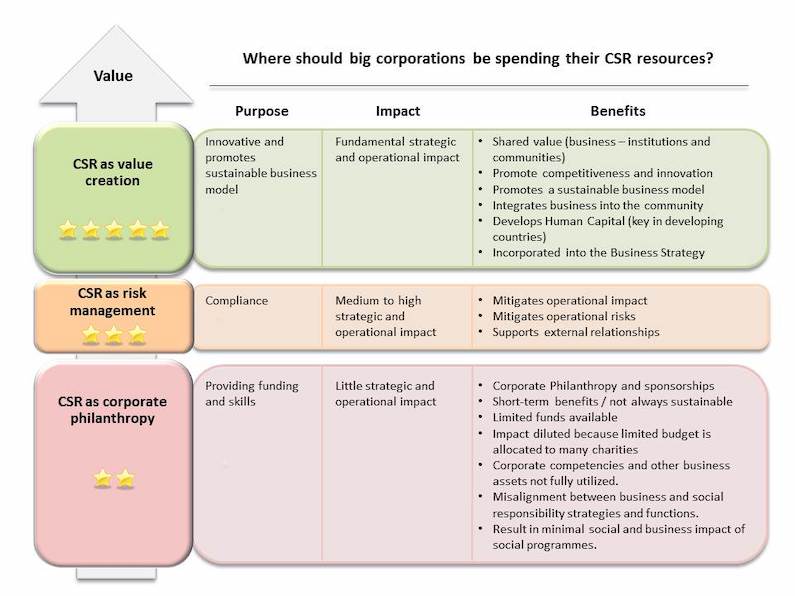What is Corporate Social Responsibility?
Corporate Social Responsibility (CSR) is a concept that has companies integrating social and environmental concerns in their day-to-day operations and in their interactions with their stakeholders and community. It is the place where environmental issues meet business practices, human resources and the community at large.
Businesses following CSR principles take into account legal, accounting, environmental, and ethical considerations when formulating their business plans. One of the key aspects is the reduction of harmful impact on the environment, whether that is by safeguarding water supplies, reducing emissions, or recycling end-of life products. This latter objective can best be achieved by partnering with a responsible electronics recycler who can destroy confidential data as well as dispose of old and obsolete electronics.
At Potomac eCycle our aim is to follow best industry practice of “reduce, reuse, and recycle” to ensure that a minimal amount of material eventually goes to a landfill. Try as we may, at this time it is not possible to reduce that amount to zero, but we get as near to it as anyone in the electronic recycling business.
A study conducted by Nielsen in 2015 showed that global customers expect companies to act responsibility and believe that it is important for businesses to consider environmental issues as well as the bottom-line. The study also showed in a preference for supporting such companies, i.e. buying their products or services, while “punishing” those lacking such values, by ignoring their offerings. The research found that almost 60% of the responders would pay more for products offered by companies known to be environmentally aware (58%) and to have a commitment to social values (56%).
M&S, a leading retail company in the UK, has defined these in its “Plan A” (so-called because there is no Plan B for our planet), its sustainability action plan.
“Our customers, our colleagues, our suppliers, and our shareholders all want to know that we are doing the right thing for our planet.”
M&S has been a leading light in recognizing its role in social responsibility, from its initial plan devised in 2007 through to its current aim to becoming net zero by 2040.
A key part of the M&S plan is the adoption of the circular economy principle described by the Ellen Macarthur Foundation. This advocates an approach that is designed to benefit businesses, society, and the environment by three key steps:
- Designing out obsolescence, waste and pollution; eliminating materials that are potentially harmful to humans and/or the environment.
- Keeping materials, equipment, and devices in use as long as possible; designing for durability, reuse, remanufacturing, and recycling.
- Avoiding the use of non-renewable resources by recycling or reusing devices, materials, and components.
The concept of the circular economy is becoming popular with businesses and forward-thinking leaders alike. They see the opportunity offered by a circular economy, to benefit businesses, consumers, and the environment with a consequent positive impact across the whole of society.
Benefits of Corporate Social Responsibility
An obvious question when considering adopting CSR principles is, “What are the benefits to be obtained?”
The answer is that there are three main areas where CSR is beneficial:
- The corporate image is enhanced by the company being perceived as environmentally and socially aware, leading to positive PR and increased customer and brand loyalty.
- It is easier to attract the best and brightest applicants for job vacancies, as the company is seen to be community- and environmentally-facing, qualities that appeal particularly to Gen X and Gen Z age groups.
- The adoption of CSR and circular economy principles can lower production costs at the same time as reducing waste by reusing and recycling.
Adopting CSR practices is not a one-off project: it is as much a mindset as a tactical approach. As the principles are applied, more opportunities will be identified and as the benefits are realized, the customer and environmental focus will become second nature.
How do I Implement CSR?
The best, and easiest, place to start is usually with the reassessment of materials use, starting with design and purchase and following through the production process, reducing waste and reusing materials whenever possible, to the eventual disposal of any waste generated.
Another easy area to have an impact is the recycling of end-of-life electronics. Establishing a partnership with a reliable recycler is key to getting the maximum benefit from this, as well as having peace of mind over the elimination of potentially sensitive data.
Potomac eCycle is always happy to advise on responsible disposal options. Contact us for more details.


Recent Comments